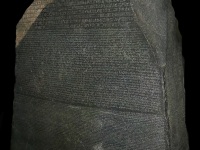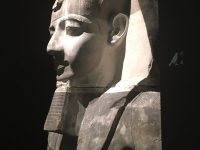Heinrich Karl Brugsch and the Decipherment of Demotic Script
On February 18, 1827, German egyptologist Heinrich Karl Brugsch was born. Brugsch was associated with Auguste Mariette in his excavations at Memphis and pioneered in the decipherment of Demotic, the simplified script of the later Egyptian periods. He also recognized the Semitic side of Egyptian grammar, thus enabling a far more comprehensive and systematic understanding of hieroglyphs. Self-taught Studies in Egyptology Heinrich Karl Brugsch was born in Berlin, Germany, as the son…
Read more






